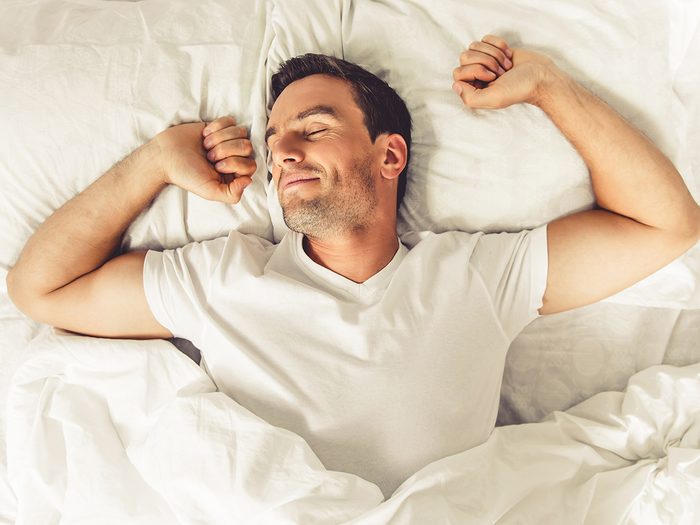
9 of the Best Vitamins for Sleep
If it’s 2 AM and you’re reading this article in hopes of finding a solution to your endless tossing and turning, you’re not alone: More than half of Canadians suffer from lack of sleep or some form of sleep disorder such as insomnia.
Unfortunately, chronic sleep deprivation can have serious health consequences. One study published in the journal Sleep found that sleeping less than seven hours per night on a regular basis doubles your mortality risk and sleeping less than six hours quadruples your risk.
North Americans spend more than $40 billion on sleep aids annually. “That’s more than they spend on any other ailment, making sleeplessness the biggest epidemic facing the nation today,” according to David Friedman, RND, a board certified alternative medical practitioner in Wilmington, North Carolina.
But there may be more to blame than your stressful lifestyle, graveyard shift work, or staying glued to your smartphone while lying in bed. “An often overlooked factor in sleep problems is a vitamin deficiency,” says internist Arielle Levitan, MD, co-author of The Vitamin Solution: Two Doctors Clear the Confusion About Vitamins and Your Health. “We need adequate levels of key nutrients to get good quality sustained sleep.” Following are some of the best vitamins for sleep to help you get the ZZZs you need.
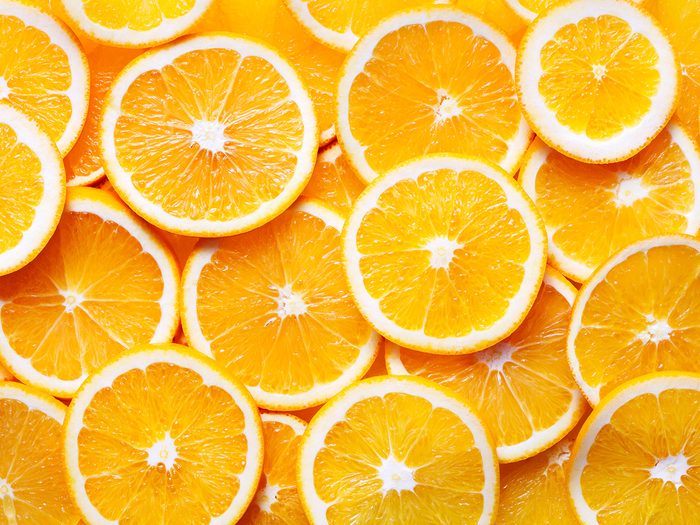
Vitamin C
You probably already know of vitamin C’s importance to your immune system, but did you also know it’s vital to sleep? According to a 2014 study published in PLOS ONE, people who have low blood levels of vitamin C had more sleep issues and were more prone to waking up during the night.
Learn to spot the signs you’re not getting enough vitamins.

Iron
Iron helps transport oxygen throughout your body, which is why a deficiency can leave you feeling fatigued. Remember how Popeye eats spinach and becomes strong and powerful? Yep, spinach is packed with iron. An iron deficiency has been linked to restless leg syndrome, a condition that causes uncomfortable sensations in the legs and an urge to move the legs when falling asleep. Dr. Levitan and her co-author, endocrinologist Romy Block, MD, say iron deficiency is common—particularly among women. If you have iron-deficiency anemia, you may need to take a supplement, and add these iron-rich foods to your diet.
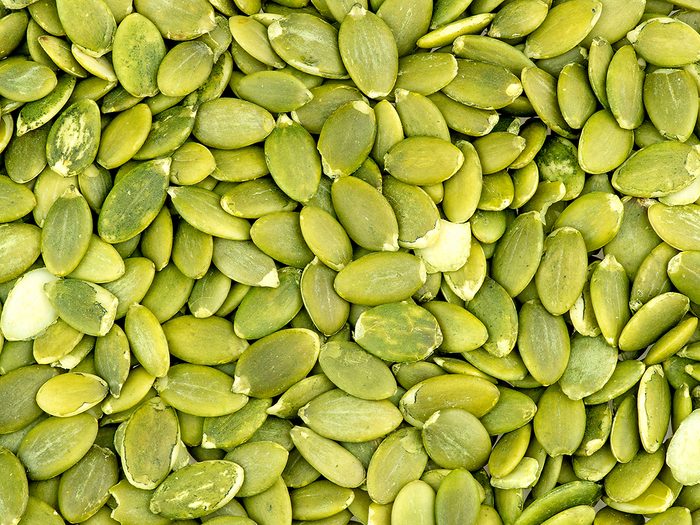
Magnesium
This essential mineral assists your body in producing the sleep hormone melatonin. Magnesium also relieves muscle tension that can prevent restful sleep; it can even help ease tension by encouraging production of an amino acid known as GABA, which that relaxes the nervous system. Carolyn Dean, MD, ND, a medical and naturopathic doctor in Kihei, Hawaii, estimates that more than 75 percent of Americans aren’t getting the recommended dietary allowance (RDA) of magnesium. Dr. Dean recommends aiming for a 600 mg dosage via a magnesium citrate powder that you can dissolve in water. However, you shouldn’t supplement if you have kidney failure or an excessively slow heart rate, she says; instead, enjoy foods with higher magnesium content, such as green leafy veggies, pumpkin and sesame seeds, and Brazil nuts.
Brush up on the 13 essential vitamins your body needs.
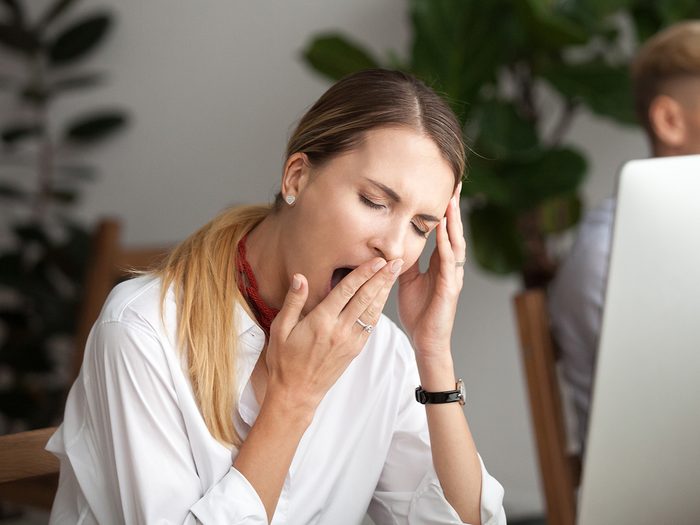
Vitamin B12
Vitamin B12 keeps the body’s nerve and blood cells healthy and helps the body create energy. Dr. Levitan sees many patients—particularly vegans, vegetarians, and older adults—who are deficient in vitamin B12. Low vitamin B12 levels can cause fatigue, sleep disturbances, numbness and tingling, and other symptoms.
Discover more medical reasons you’re tired all the time.
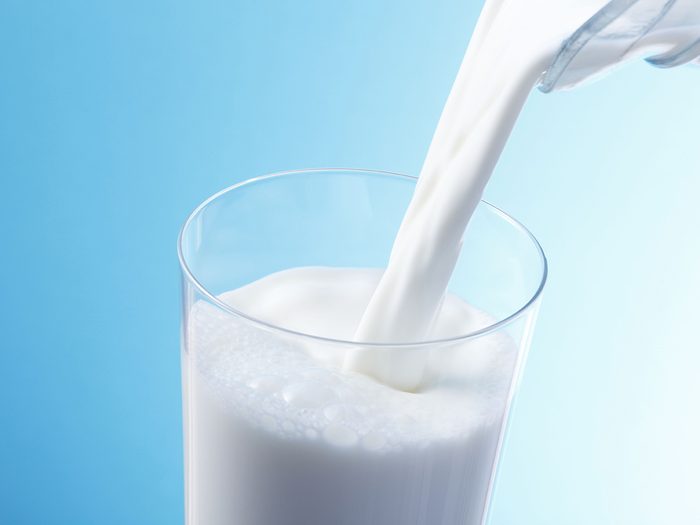
Calcium
A study in The Journal of Sleep Research that found calcium deficiency could disrupt the dream cycle of sleep known as rapid eye movement (REM). When the researchers brought calcium levels up to normal, the volunteers regained normal REM sleep. You can get the mineral from dairy or you can also eat more foods like kale, mustard, collard greens, sardines and sesame seeds to boost your calcium intake. The National Institute of Health (NIH) intake recommendations are 1,000 mg for adults ages 19 to 50 and 1,200 mg for those 51 and older. If you’re not meeting that amount, you may need to take a supplement to make up the difference.
Next, our experts answer, “Is milk good for you?“

Tryptophan
L-tryptophan is an essential amino acid—your body uses amino acids to build proteins. You need tryptophan to make niacin, a B vitamin vital to serotonin, which is a neurotransmitter that helps produce healthy sleep patterns. Since your body cannot make tryptophan on its own, it must come from your diet (foods such as eggs, poultry, chia seeds, and sweet potatoes) or supplements.
Discover 12 secrets to a good night’s sleep.
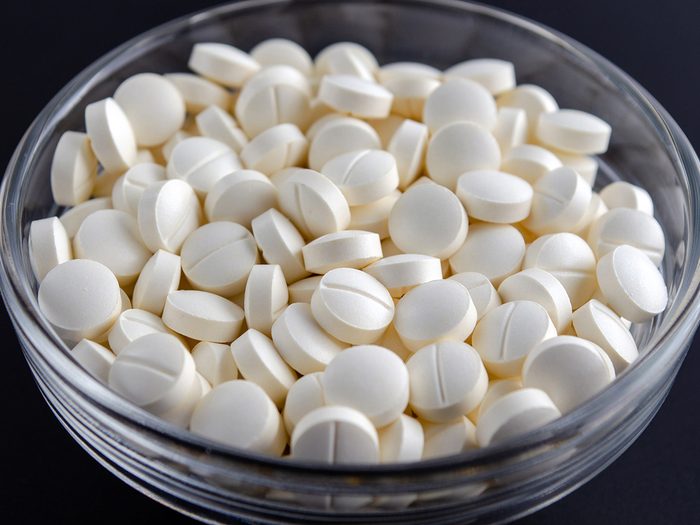
Melatonin
At night, the pineal gland of the brain produces a hormone called melatonin. Melatonin helps regulate the body’s day/night circadian rhythm, including the timing with which other hormones are released. Research suggests that taking a melatonin supplement can help you get your beauty rest. Dr. Friedman recommends starting with a low 1 mg dose and says it’s crucial to time it right for your sleep pattern: If you are able to fall asleep, but have a hard time staying asleep, try taking a controlled-release formulation 30 minutes before going to bed; if you have a hard time falling asleep, a better option is a quick-release sublingual or liquid form, taken an hour before bed. If you wake up in the middle of the night, don’t take melatonin to go back to sleep, as this will throw off your internal clock.
Follow our ultimate sleep hygiene checklist for the deep, restful sleep of your dreams.
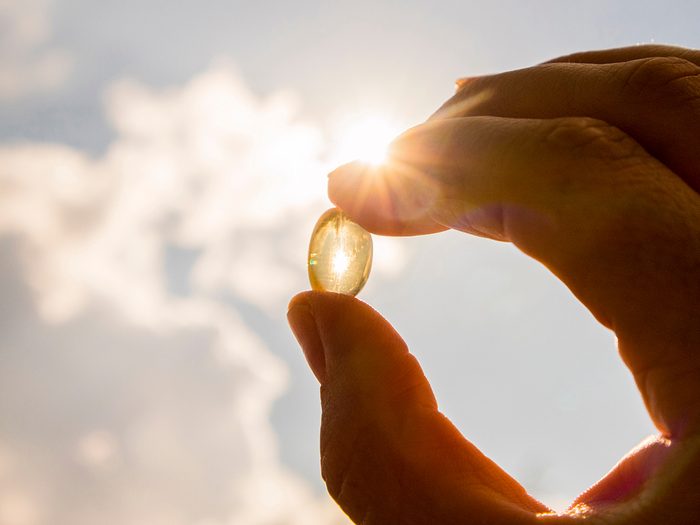
Vitamin D
Research suggests there may be a link between low levels of vitamin D and poor sleep quality. The Food and Nutrition Board’s recommended intake for the vitamin is 600 IUs daily; however, your body can only produce this fat-soluble vitamin when sunlight hits your skin, and it’s difficult to get enough from food alone. As a result, Dr. Levitan and Dr. Block find many patients need higher doses to maintain normal serum levels. It’s important to talk with your doctor about your individual nutrient needs, as too much vitamin D can lead to constipation, nausea, vomiting and kidney stones.
Make sure you never take these supplements on an empty stomach.
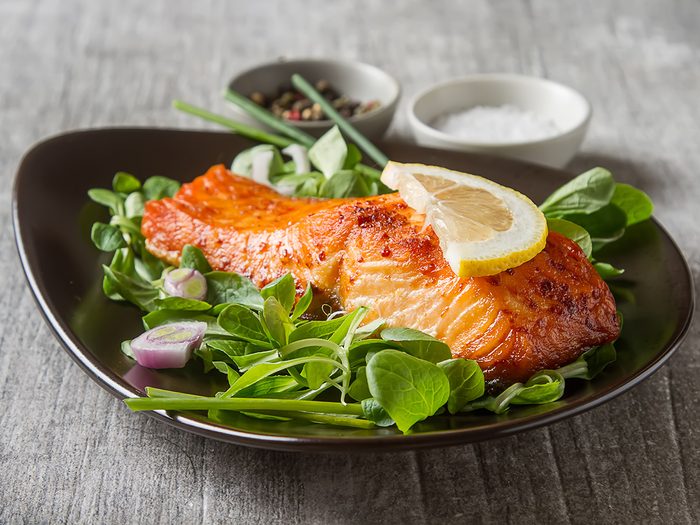
Omega 3s
Commonly found in fish, Omega 3s are healthy fats that are known for their many benefits to heart and brain health. Some research has also linked omega-3 supplementation with better sleep.
Next, find out what to eat before bed to promote sleep.